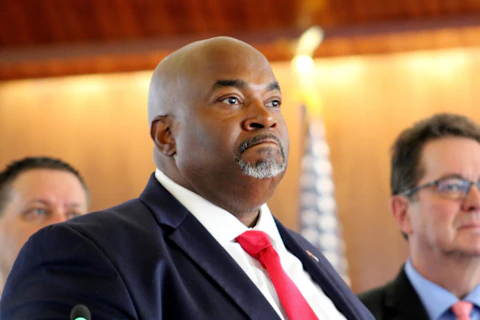From the fight against COVID-19 to the physical and emotional toll of being uninsured, the nation’s health would suffer greatly if Trump is re-elected.
During the final presidential debate on Oct. 22, Joe Biden said that this election is “not about [Trump’s] family or my family. It’s about your family.” As physicians on the frontlines of the COVID-19 pandemic, these words were particularly salient for the patients that we treat. This election is about them and their families. Their stories inspire us to advocate for leadership that will put their needs and those of the most vulnerable at the forefront of policy decisions.
Like Tory, who lost her job and health insurance because of COVID-19. With no income (or outside assistance), she has been unable to afford her insulin, gained more than 30 pounds, and become severely depressed as her blood sugar rose to unsafe levels.
Or Kim, who waited months to get the necessary blood tests to explain why she felt tired and weak, and was unable to complete her daily activities. Because of our clinic’s limited resources, we were able to diagnose her condition but unable to do further testing or refer her for a higher level of care. Without health insurance, Kim is unwilling to seek emergency care for a blood transfusion, fearing the crippling costs associated with an emergency room visit.
And then there’s Mark, who lost his job and has been at home since the start of the pandemic. He is one of the almost 17% of Houstonians experiencing food insecurity, which is 4% above the national average. He now regularly seeks assistance from local food pantries, who are struggling to meet the rapidly growing needs of our community.
These stories are not anomalies; they are ones that we hear every day at the safety-net clinics where we work and reflect the daily experiences of an ever-increasing swath of our community. The swath that lacks health insurance and access to high-quality health care.
In our clinics, patients from medically underserved communities share the difficult choices and questions they are regularly forced to face: “Do I buy groceries or pay for my prescriptions?” “How will I get to my appointment, let alone pay for the visit?” “What will I do if I have a serious diagnosis?”
Our patients make up a fraction of the approximately 20% of Texans without health insurance, a hardship that can be traced back to a lack of investment on the state and federal level in quality health care for all. As a result, our patients are suffering unnecessarily.
Texans deserve a government, and a president, who will protect their well-being. In this election, the healthcare policy differences between the two candidates could not be more clear. For many Black and brown communities in Houston, health is intimately tied to longstanding systemic racism that President Trump refuses to acknowledge.
It affects where individuals from these communities live, the health care they receive, the schools they are able to attend, and even the air they breathe and water they drink. Before the COVID-19 pandemic, the average life expectancy in Harris County, which encompasses Houston, and Texas overall, varied by as much as 20 and 30 years, respectively, depending on the zip code in which individuals reside.
The COVID-19 crisis has only worsened these inequities.
President Trump has shown little interest in these disparities, refusing to acknowledge that they exist. In fact, his lasting contribution to the United States healthcare system and the healthcare needs of many Americans is a lawsuit that stands to repeal the Affordable Care Act (ACA).
If re-elected, he will continue efforts to abolish the ACA, leaving millions of Americans without health insurance, further increasing the number of uninsured Texans, and inevitably exacerbating the disparities laid bare during the pandemic. Millions of people infected by COVID-19 will face significant ongoing health care expenses as they recover, especially lower income, communities of color that have already suffered disproportionately. But instead of expanding access to health care during this crisis, Trump is only trying to take away the care we already have with ACA, with no alternative plan to replace it.
Importantly, the ACA provides provisions that allow for expansion of Medicaid, which would quickly allow us to meet the needs of many Texans. The lack of Medicaid expansion in Texas has resulted in at least 18% of the state’s population being uninsured, one of the highest rates in the nation. As a result, more than $7 billion dollars is spent annually to care for uninsured patients in Texas hospitals before the pandemic.
Joe Biden’s proposal to strengthen the ACA and introduce a public option will save lives. A vote for Biden-Harris is a vote for science, decency, addressing systemic and institutional racism in the United States, and a fierce commitment to families—in Texas and across the nation. Medicaid expansion, science, health, and our lives are on the ballot. We know what to do to protect patients and families in Texas and the United States. Please do your part and vote for health in this election.
Authors’ Note: The opinions and views presented above do not represent the university or clinical sites with which we are affiliated. Names of patients have also been changed to protect confidentiality.







